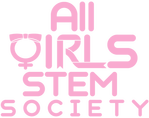|
Women in STEM Spotlight Throughout history, women have made many incredible achievements in the science and mathematics fields. Though their contributions have often been overlooked and overshadowed, without many of these women we would not be where we are today. Among others, women’s developments in space travel, gene editing, and computing programming have changed the world indispensably. To give these women the recognition they deserve, here is a spotlight on three influential and inspirational women in STEM! 1. Katherine Johnson (1918-2020) Born in Virginia, Katherine Johnson was a research mathematician and computer scientist during the 1900s. She is most famous for her calculations of orbital mechanics — essential to the success of the first American space flight. She began her career as a teacher, until 1953 when she started working for the National Advisory Committee for Aeronautics (NACA). She described herself and the women she worked with as “computers who wore skirts,” whose jobs consisted of performing mathematical tasks (such as reading the data from the plane’s black boxes). She quickly impressed the men around her with her knowledge of analytic geometry, which often led to her male colleagues and bosses forgetting to return her to her all-female job post. In 1958 she began working as an aerospace technologist for the Spacecraft Controls Branch, where her mathematical calculations proved essential for American spacecraft. In addition to calculating the trajectory of the first American in space, she calculated the launch window for a 1961 Mercury mission, and was called on specifically by astronaut John Glenn to verify the computer’s numbers. Glenn stated that he would not fly unless Katherine Johnson checked the numbers specifically. “Girls are capable of doing everything men are capable of doing,” said Johnson. And with her impressive and indispensable work, she certainly proved herself right. 2. Jennifer Doudna (1964-present) Born in Washington D.C., Jennifer Doudna is an American biochemist most famous for her work with CRISPR gene editing. She received her undergraduate degree from Pomona College, and has a Ph.D. from Harvard Medical School. Together with Emmanuelle Charpentier (a researcher in microbiology, genetics, and biochemistry), Doudna suggested that CRISPR-Cas9 (an “adaptive immune system that naturally protects cells from DNA virus infections”) could be used for programmable editing of genomes. This proposition became one of the most important biological discoveries in history.. Since her work with CRISPR, Doudna has been an important figure in the "CRISPR revolution. For example, she used CRISPR in 2020 to develop technologies that addressed the COVID-19 pandemic. She is also often called-upon to help with the ethical side of the CRISPR technology (the morality of changing organisms). For her work with CRISPR and their work with genome editing, Doudna and Charpentier received the 2020 Nobel Prize in Chemistry. This was only the fourth time women had been honored with this award. “Just because we are not ready for scientific progress,” said Doudna, “does not mean it won’t happen.” 3. Ada Lovelace (1815-1852) Born in England, Augusta Ada King, Countess of Lovelace (Ada Lovelace) was a mathematician, most famous for the title many bestow her with — the first computer programmer. Her mathematical prowess was visible from a young age, and she was known for questioning basic assumptions others had accepted. This was in part due to her interest in poetry as well as math. To Lovelace, intuition and imagination were necessary to understand scientific concepts. She was a metaphysicist, which refers to “to the studies of what cannot be reached through objective studies of material reality.” Between 1842-1843, Lovelace translated an article written by Italian Luigi Federico into English, and added detailed notes and annotations (named simply “Notes). These notes are critical to the early history of computers, and many say they contain the first computer program. After Lovelace, the first early programming language was called Ada. “The more I study, the more insatiable do I feel my genius for it to be,” she said. Her thirst for knowledge is truly inspirational.
0 Comments
|
AGSS VolunteersThese angels, who encourage and support, share some of their many everlasting experiences with silly, yet driven girls. Archives
April 2024
Categories |
All Girls STEM Society is a 501(c)(3) nonprofit organization.

 RSS Feed
RSS Feed